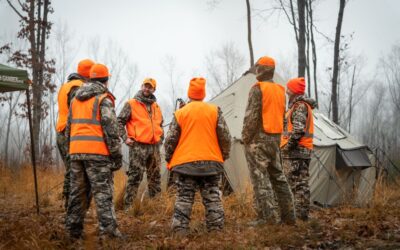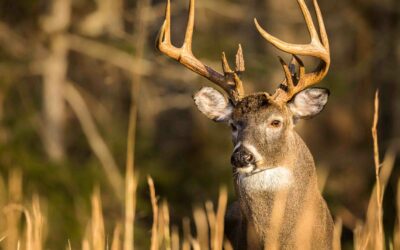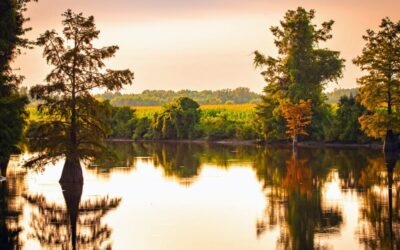The Race for Governor is in its final stretch. And Tennessee Wildlife Federation is bringing conservation to the conversation.
Tennessee’s wildlife and natural resources directly impact every Tennessean. For generations, our air, water, wildlife, and lands have shaped a way of life. They are the sources of tradition, recreational outlets, and major economic drivers for even the most remote counties in our state.
Yet, the candidates were surprisingly quiet when it came to the topic of conservation. We asked you to engage and share your concerns.
Nearly 200 questions were submitted to us for the Tennessee gubernatorial candidates Karl Dean and Bill Lee. We took the most common and pressing concerns directly to them.
The Federation is pleased to share Candidates Dean and Lee’s responses.
READ MORE>> Candidate Karl Dean answers your questions about conservation.
As the race nears its finish and early voting opens, we encourage all Tennesseans to consider your impact. Your vote sends a message about the topics most important to you. Make wildlife one of those priorities, and make Tennessee’s next governor work for you.
About Bill Lee
(Note: This biography was submitted to Tennessee Wildlife Federation by the campaign.)
I’m running for Governor, but I’m not a politician. I’m a cattle farmer, a businessman, a father and grandfather, and a seventh generation Tennessean. At my company, I work with electricians, pipe fitters, and plumbers. I’ve spent a good part of my life doing what I can to make life better for them, and now I’d like to try to make life a little better for six and a half million Tennesseans.
Traveling around the state, I’ve learned that most Tennesseans have a few things in common: they want a good job, a good school for their kids, and a safe neighborhood for their families. I hope to earn your support and deliver those things for your family and every other family across our state.
Federation: What do you think are the most important conservation issues in Tennessee right now?
Lee: One of Tennessee’s greatest assets is its natural beauty and its fish and game populations. These not only make life more enjoyable for Tennesseans, but they also attract millions of tourists to our state every year. As governor, I will work hard to make sure that we preserve these natural gifts so that our children and grandchildren can continue to enjoy them.
Federation: Research has shown that approximately 2/3rds of all Tennesseans engage in some form of outdoor recreation, whether it be hunting, fishing, boating, hiking, camping, biking, wildlife watching, trail running, etc. If elected governor, please tell our audience about your beliefs and plans as to how your administration will protect and improve upon our lands, waters and wildlife, which are the foundation of Tennessee’s outdoor recreation opportunities?
Lee: In business, I have learned that the first step towards success is assembling the right team. As governor, I would consult with leaders like the Wildlife Federation to identify what they see as the major issues facing the state.
I grew up hunting, fishing, hiking, and camping. Our farm was one of the first to help re-introduce wild turkeys and quail in Middle Tennessee, and today I enjoy taking my children and grandchildren to watch and hunt these magnificent animals. I’ve had a lifelong commitment to the outdoors and to conservation, and that won’t change when I’m governor.
Federation: Previous gubernatorial administrations have produced rural development plans for our state. However, the significant economic value and impact of wildlife, water, and outdoor recreation in our rural communities has not been represented during the development of or in the final work products of these plans. First, do you believe that the value and positive impact of outdoor recreation and the wildlife, water and lands that provide these opportunities is important, and secondly, what will you do in your administration to ensure that the value of water, wildlife and outdoor recreation is a key factor when considering rural development during your administration?
Lee: The outdoors play a critical role in Tennessee’s economic development. They have played an integral role in my life, from canoeing and hunting with my father, to now taking my own children and grandchildren on outdoor adventures. They also attract millions of tourists, which promote growth in rural areas. As governor, I will make sure that any conversations on rural development move forward with an understanding of the importance of outdoor recreation to our state.
Federation: Water is arguably Tennessee’s most valued and important individual natural resource. Given the growth pressures being placed upon our waters across the state, and continued pressure from the regulated community to weaken our rules and laws designed to protect the health and availability of our water, how would your administration work to ensure the long-term health and availability of our water resources?
Lee: In Tennessee, our rivers, streams, lakes, and ponds are some of our most precious resources, and they are a powerful engine for economic growth. However, we cannot take them for granted. Many states in the Western part of the nation have significant problems with a scarcity of clean water. As governor, I will work with our businesses and conservation groups to ensure we are protecting the quality of our water in Tennessee.
Federation: The Great Smoky Mountains National Park is the most visited national park in the United States. Tennessee’s state park system is widely considered one of the best state park systems in the country. Our state forests, wildlife management areas, refuges, national forests, recreation areas and local parks provide millions of Tennesseans with outdoor recreational opportunities, and drive significant rural economic activity. What will your administration’s policy be towards our public lands?
Lee: Growing up, we spent many vacations in Tennessee’s beautiful state parks. In fact, one of my most vivid childhood memories was of visiting Fall Creek Falls for the first time. As I grew older, I also started traveling to other parks across the nation, like the Grand Tetons. As a parent, some of my most treasured memories are of taking my daughter, Sarah Kate, horseback riding along the many trails at Big South Fork. As governor I will work to ensure our state parks remain the source of joy and serenity for future Tennessee families that they have been for our family.
Federation: Non-native, exotic animals such as Asian carp, wild hogs, and insects such as the gypsy moth, emerald ash borer, hemlock woolly adelgid, are invasive and highly destructive of our native Tennessee plants and wildlife; creating significant negative economic impacts. Historically, agencies and efforts to address these invasive exotic pests have been chronically underfunded and highly variable in their results. What will your administration do to face and address these threats across our state?
Lee: I have spoken to fisherman and sportsman across Tennessee, and the Asian Carp infestation continues to be a major concern for me. I’ll bring together leaders to try new barriers to contain the carp population, improve our research capacity for new genetic responses to stop the breeding of carp, and will continue to support our Asian Carp Harvest Incentive Program (ACHIP) to encourage fisherman to help us clear out the carp population.
Federation: Where we locate development is critical for ensuring the integrity of our natural resources, containing state and municipal costs, and supporting Tennessee’s economy and brand, which relies on our rich natural environment. What steps would your administration take to make sure future development is properly located?
Lee: As with all development issues, the key to success is engaging the local officials, residents, businesses, and non-profits closest to the project in question. At the state level, I will continue to assess and seek improvements to our state greenbelt law, and I will work to ensure that our state agencies are working to preserve our state’s unique natural resources.
Federation: What process will you employ in choosing commissioners of key natural resource agencies, including the Department of Environment and Conservation; Wildlife Resources Agency, and Department of Agriculture? What qualities and/or characteristics will you be looking for in your appointments?
Lee: I will look for leaders who share my values, with an ability to motivate others and a personal passion for the mission of their agency or department. To find the best candidates with these qualities, I will consult with industry and non-profit leaders and maintain an open dialogue with the organizations that serve to protect our natural resources.




